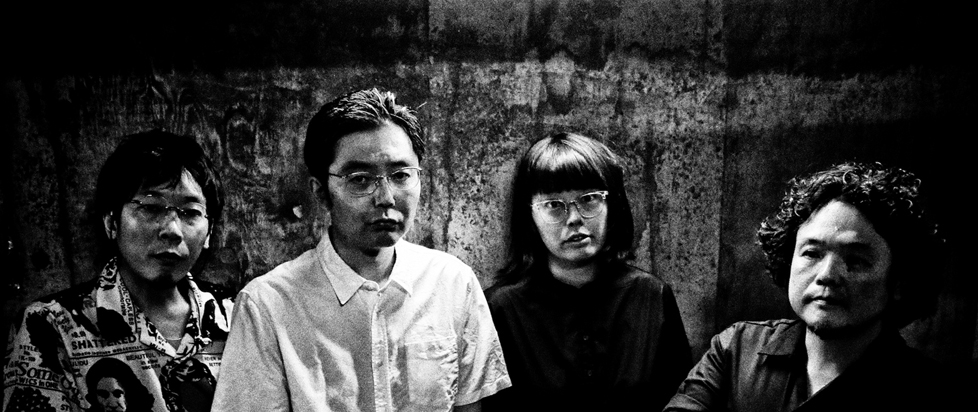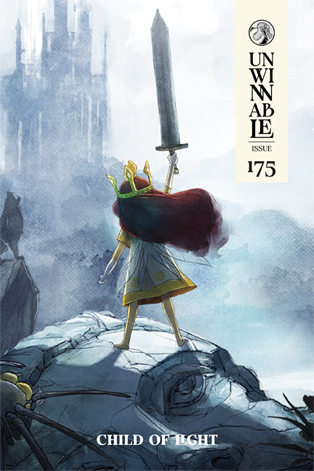
Zazen Boys and the Healing Riff

This column is a reprint from Unwinnable Monthly #175. If you like what you see, grab the magazine for less than ten dollars, or subscribe and get all future magazines for half price.
———
Wide but shallow.
———
Who are we to ask for more from Shutoku Mukai. Number Girl wasn’t enough, certainly not for me. If you’ve checked all Tim Roger’s citations you’ve surely spun them a few times, vanguards of Japanese guitar rock fed on Sonic Youth and Smashing Pumpkins and so much more. Another band locked out of American distribution, comparatively huge at home but kept at bay from those of us clinging to the physical manifestations of seized time left in the West.
If I can confess though, I’ve always preferred Zazen Boys, Mukai’s side project turned main gig after the end of Number Girl in the early 2000’s. Number Girl could go from still to boiling in seconds, and that same heat simmers throughout Zazen Boys, but there’s more appreciation of what the middle temperatures can accomplish. There’s an ode to the Fender Telecaster, so we know that Zazen Boys still make rock ’n roll the bedrock of their seasoning, but they dial back from Number Girl’s wall of textures and commitment to clip. The trade off is for Steely Dan-level players doing the Minutemen versions of Fagan and Becker, guitars, drums and bass locked in from jangly strum through a firmly socketed groove.

Zazen Boys bounce where Number Girl steamed, getting downright swampy like the best Talking Heads songs. Which isn’t to say they were buttoned up at all times, as the live Matsuri Session records show a band knows when to lock in and when to throw all the doors wide open. And where most bands start sliding in Moog synthesizers because they’ve worn down their frets, Zazen Boys crashed back fully rejuvenated with their late career album すとーりーず (Stories). Bassist Ichiro Yoshida went nuts on his own solo album with the layered bloops and saved some of that sauce for Mukai and the gang. It was a good album, but I worried that the bop was left behind, the engine bereft of coal.
Despite the fleet of ships keeping underwater fiber-optic cables linked so that the world is nominally connected at all times, it’s hard staying up to date on a band that operates primarily out of Japan and in Japanese, as a primarily English speaker and reader (undergrad classes notwithstanding). But every now and again I catch some news on Mukai’s twitter feed; a DVD I can’t find, live shows out of reach, Yoshida quitting the band and being replaced by Miya, formerly of 385 and Bleach who can absolutely dis/entangle a bassline with style to spare. A video of her performing with Zazen Boys surfaced and it was a revelation, the slap-funk from those early albums was back and now I was hungrier than ever.

So we come to らんど (Rando), news to me but sprouting through the server farms even over here on launch day and kicking off the best of 2024 while January still shivered. Mukai and Sō Yoshikane are plucking through their Fenders in the entire spectrum of harmony, while Atsushi Matsushita has stuffed his drums so full of silica gel packs that they’re drier than the surface of the sun. I thought Zazen Boys were done, but Mukai knows that youth is an application of spirit and that this band contains too much booty-shaking energy to be contained.
The first single was “Eternal Girl”, accompanied by a low-fi Vegas sphere music video of the band playing alone in a room but then through a series of projections over their human forms, aged but no less charged. Watching this video I was surprised in two ways, first that there were English captions (however they might have been generated), confronting me with meaning behind Mukai’s words for the first time, and second that these words pretty aptly matched the flipping timbres of the tune. “Eternal Girl” starts off in maximum Telecaster chimes singing through the upstrokes, a mist of ska wafting through as Miya starts popping in. A song about a mothers and grandmothers in gazing out photographs, family history looked over, but then the light and the tone shift to 1945 and the horrors of nuclear holocaust, the photograph hiding the pain fire and war and the attempt to survive afterward. Generational pain threads through a jaunty song cast in idyllic scenes then harshly under lit.
The English bits throughout the rest of the album don’t really hint at such harrowing and historically nuanced examinations of how trauma works genetically as well as through the soil surrounding those who were lost. High school, barracuda, dueling composers, who can say. But Zazen Boys, even after so long, is clearly not afraid to confront multiple shades of life, breaking time and time signatures while remaining achingly human. It’s selfish, but I can’t help to hope for another dozen albums before the worms carry me away.
———
Levi Rubeck is a critic and poet currently living in the Boston area. Check his links at levirubeck.com.




